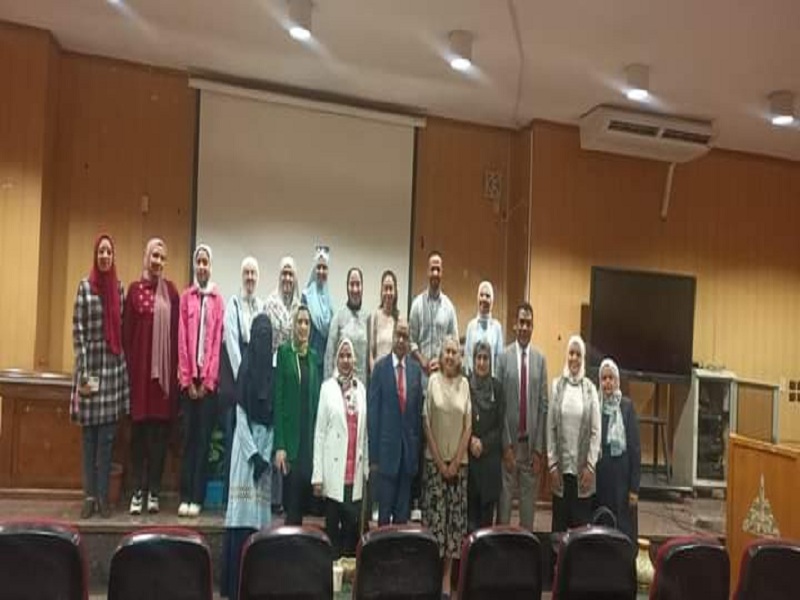The Cultural Week activities of the Foreign Cultural Relations Committee at the Faculty of Al-Alsun
Prof. Salwa Rashad, Dean of the Faculty of Al-Alsun at Ain Shams University, opened the first cultural week activities of the External Cultural Relations Committee, affiliated with the Graduate Studies and Research Sector at the faculty, under the supervision of Prof. Ashraf Attia, Vice Dean of the Faculty for Graduate Studies and Research, and Prof. Hassanein Fahmy Hussein, rapporteur of the Foreign Cultural Relations Committee at the Faculty of Al-Alsun, began with a symposium entitled “Egypt and the Strategic Partnership with China,” in which Mrs. Ahmed Salam, former Undersecretary of the State Information Service and former media advisor to Egypt in China.
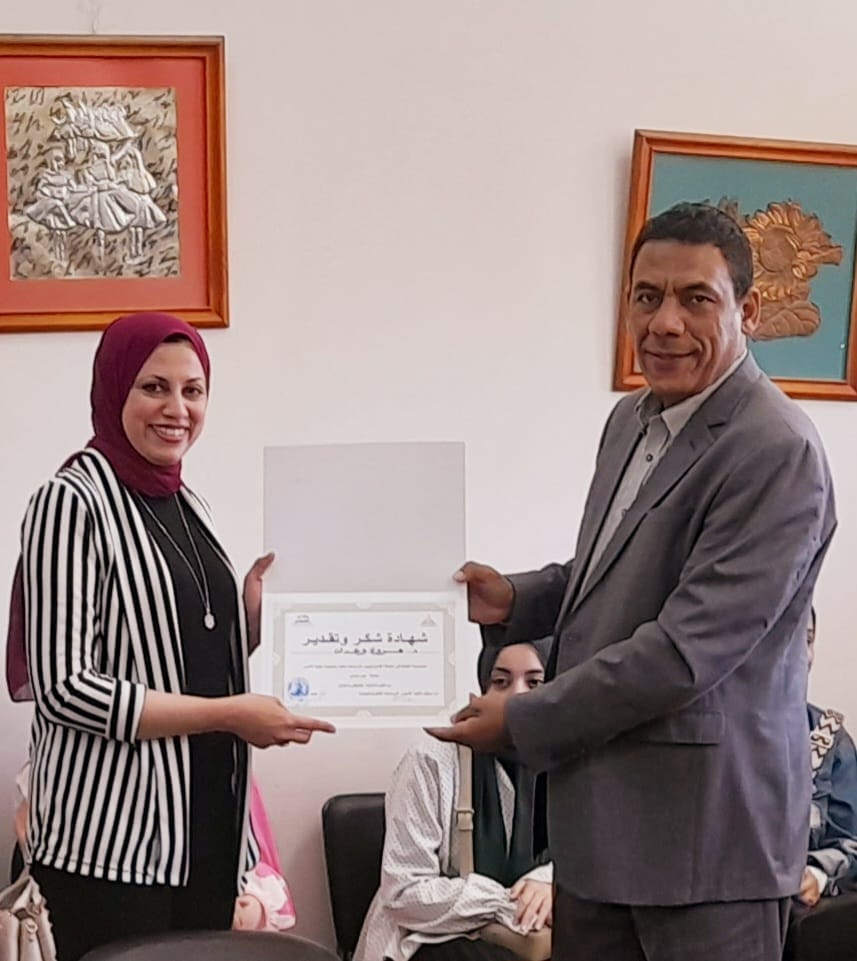 |
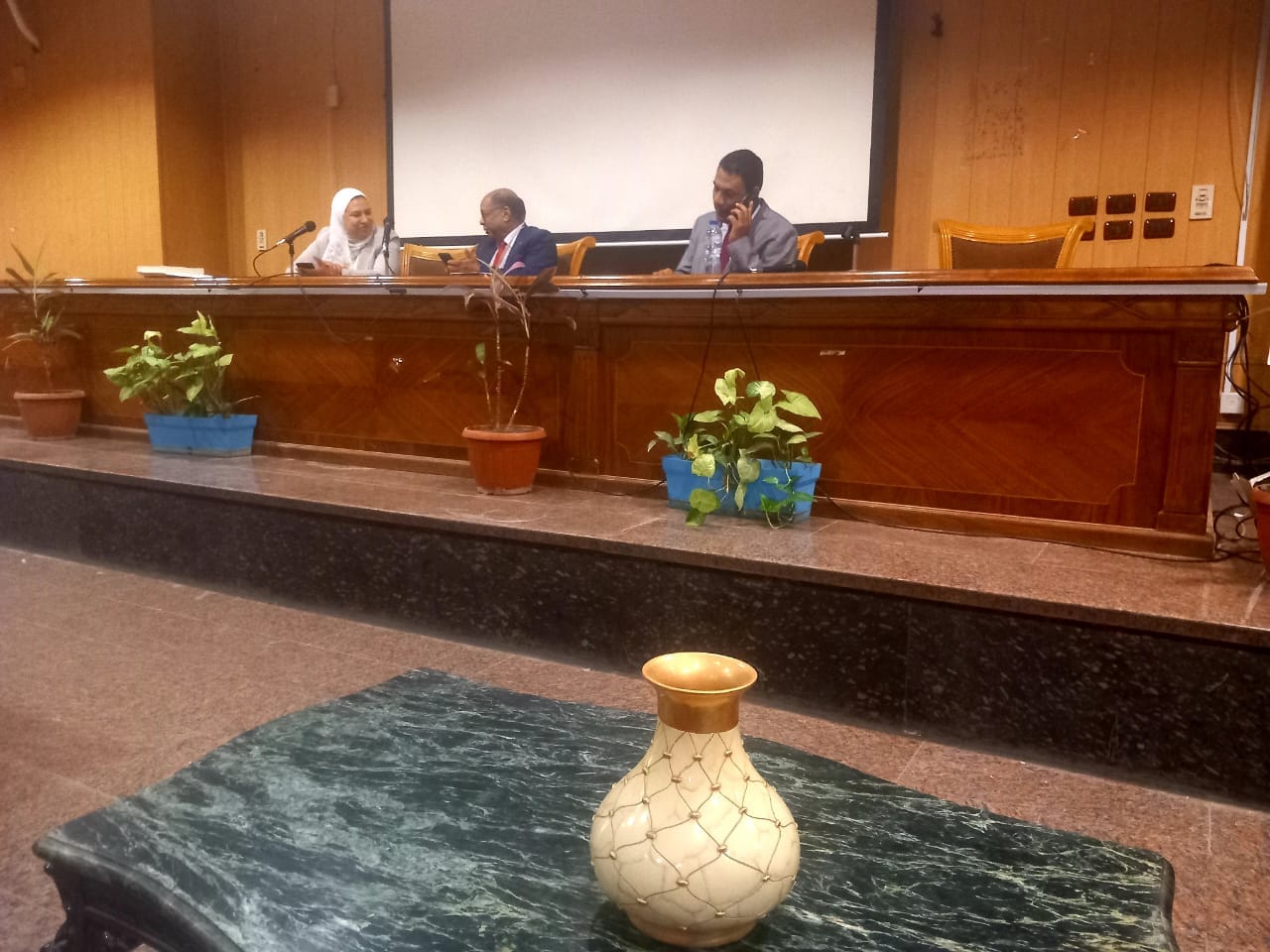 |
He pointed out that Egypt was the first Arab and African country to recognize the new China, and Egypt is also one of the first countries to respond to the “Belt and Road” initiative, given the close and rooted relations between Egypt and China through the ancient Silk Road, in addition to Egypt’s belief and leadership in the importance of integration between initiatives in development, especially the Belt and Road Initiative, which is consistent with national development priorities and the goals of “Egypt Vision 2030” and the Africa Development and Modernization Agenda 2063.
He continued his speech, stressing that the truth that the Egyptian and Chinese sides believe is that the Comprehensive Strategic Partnership Agreement represents great importance for the two countries, and is even considered the most important bilateral agreement between the two countries, especially since this agreement is a real opportunity for Egypt at this stage to enhance political, economic and commercial cooperation with the second largest economy in the world. The world, and it is also an opportunity to attract Chinese investments to Egypt.
He pointed out that in light of Egypt's efforts in its new republic to attract foreign investments, it also targets large investments in many fields such as the field of renewable energies and green hydrogen, and Egypt's efforts to develop and revitalize the electric car sector, in light of the experience that China has in these sectors and others.
Also, to benefit from the Chinese experience in building smart cities, there were high-level mutual visits between the two countries.
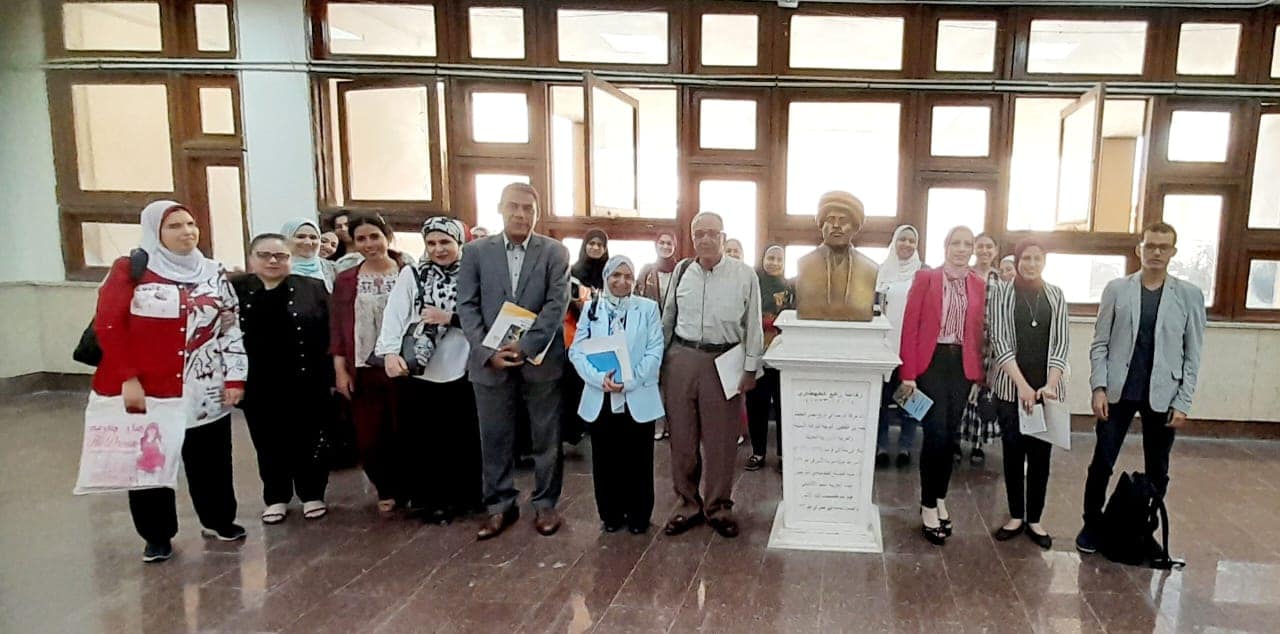 |
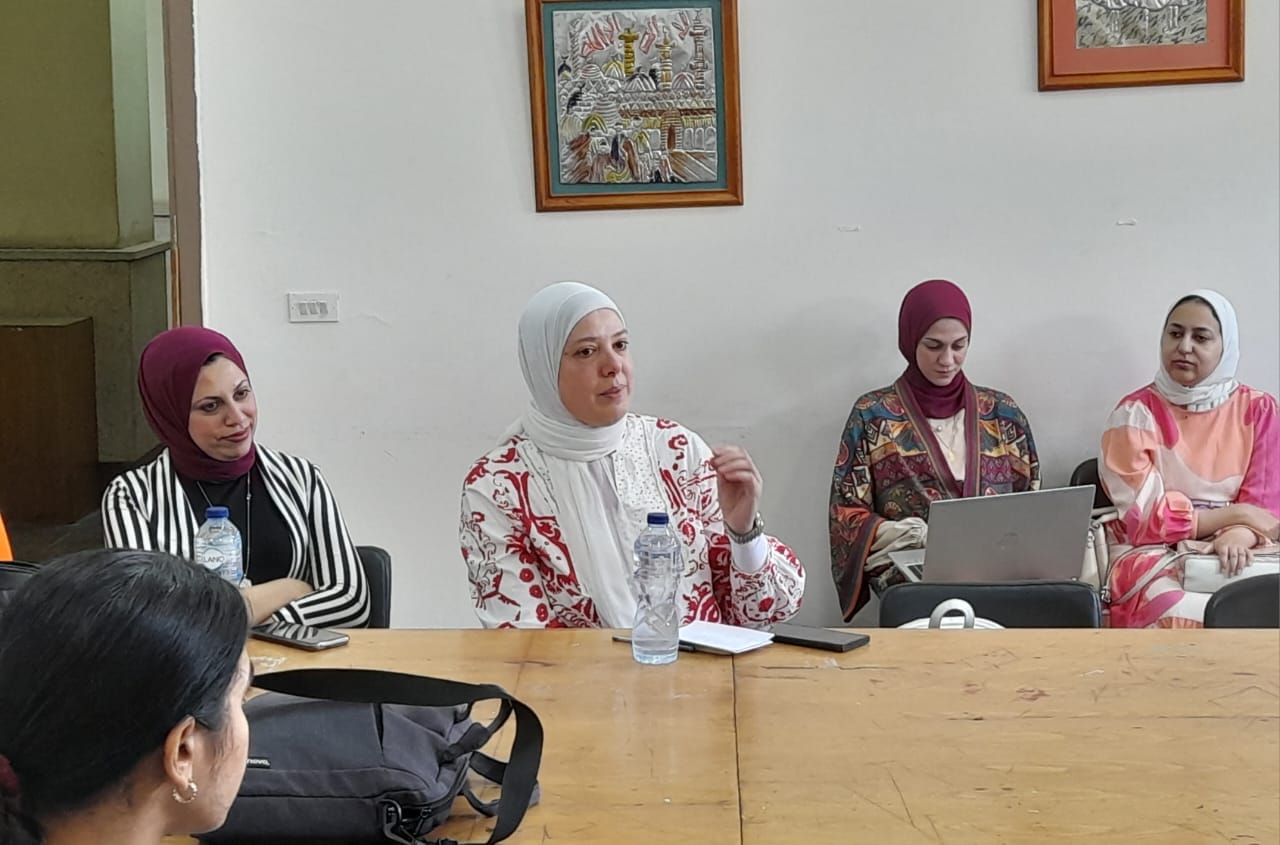 |
The two sides stressed the importance of mutual benefit, cooperation, and common interest, which resulted in the implementation of many projects within the framework of the China-Africa Cooperation Forum, as well as joint actions for Chinese-Arab cooperation. Both Cairo and Beijing are working to deepen cooperation in building the “Belt and Road,” as well as pushing Completing many projects.
The second activity of the external cultural committee was also organized at the faculty, during a symposium entitled “Literary Writing of History... the Available and the Unsaid,” during which it hosted Dr. Ahmed Ibrahim Al-Sharif, the writer and head of the cultural department at the Seventh Day Foundation, the author of the book “The Journey of Goodness... The Holy Family in Egypt.” Which was issued by the National Center for Translation, and the symposium was moderated by Prof. Maged Mustafa Al-Saidi, member of the Cultural Committee and professor in the Arabic Language Department, and Prof. Radwa Qtait, professor of English at the faculty, translated the book into English, and Dr. Marwa Wahdan in the Semitic Languages Department at the faculty, who recorded the audio content of the book in Arabic.
Dr. Ahmed Al-Sharif indicated in his speech that he is preparing the book The Journey of Goodness: The Holy Family in Egypt, as part of the “reverse translation” project launched by the National Center for Translation, and the motivation behind his writing was that talking about the “Journey of the Holy Family” is almost a “religious” matter, and this prompted him In thinking away from this point, that is, in thinking about the matter on the basis that it is a historical matter related to the identity of Egypt, especially since the books that talked about the journey were all in a research (academic) manner based on classification, arrangement, and division according to characters or places.
The aim of the book was to present an approximate process and attract a type of recipient, and to present a page of Egyptian history to the largest possible number of Egyptians. With this topic, the goal was to move from the religious to the historical framework, and because the aim of the work was to talk about an important part of Egypt’s history, therefore, the search for The history shared by all is the goal.
Because the goal is to address the largest possible amount of Egyptian society, and after translation, the goal became the English-speaking world, reaching the greatest amount of the common factor became “available,” and talking about “the priesthood” became what was kept silent about.
Hence, presenting the complete picture was an essential goal of the research, and from here we allowed ourselves, based on the fact that we were presenting the biography of “people,” to stop at their feelings and feelings of joy, sadness, fear, contentment, anxiety, reassurance, and other human feelings.
The activities also included a session entitled “Examples of the Arabic and English Story and Novel,” moderated by Prof. Hassanein Fahmy Hussein, and a number of faculty staff and members of the Cultural Relations Committee participated.
The participants were as follows:
Prof. Wageh Yaqoub, Head of the Arabic Language Department: Author of the book “Issues of the Contemporary Novel.”
Prof. Fadwa Kamal Abdel Rahman is the translator of the book “Thoughts about Framing, Motives, Contradiction, and Desire” from English to Arabic.
Prof. Amr Ahmed Shatouri, Head of the Czech Language Department: Translator of the novel “Love in the Time of Global Warming” from Czech to Arabic.
Prof. Dina Muhammad Abdo, Head of the Russian Language Department: Translator of the book “Selections from Russian Literature “Holy Love” from Russian to Arabic.
Prof. Fawzi Issa, Assistant Professor in the Italian Language Department: Translator of the novel “Liberation in a Sigh of the Morning” from Italian to Arabic.
Dr. Samar Mounir, lecturer in the German Language Department: Translator of the novel “Cinnamon Ice Cream with Honey” from German to Arabic.
At the end of the activities, Prof. Hassanein Fahmi Hussein, the rapporteur of the committee, honored the guests of the Cultural Week and handed them certificates of appreciation presented by the Graduate Studies Sector at the Faculty of Al-Alsun.
The activities of the Cultural Week witnessed a large presence from members of the External Cultural Relations Committee, faculty staff, teaching assistants, researchers, and students at the faculty.


.svg)

